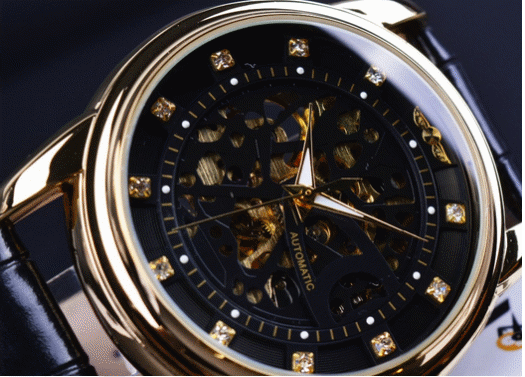Beijing, 16th May 2016 – Diamonds have been marketed as a “girl’s best friend” for ages, yet now the tables have turned with the new “For Him” campaign launched by De Beers. Partnering with prominent watchmakers and jewellery artisans, De Beers has created a new lineup of watches, cufflinks and even pens that are tastefully rendered with several small and large diamonds. This campaign is focusing on a small yet growing market segment of affluent buyers who are looking for gifts that enable them to be more distinguished than their peers.

With Parisian watchmakers like Edmond Jaeger and acclaimed jewellery company Mikimoto, De Beers is attempting to create a new genre of ultra high-end gifts that specifically target the growing upper class in China. Despite its size, China has a luxury goods market that is still in its infancy (Heine & Gutsatz 2015). In fact, many of its newly minted millionaires and even billionaires often have to settle for subpar jewellery and accessories from local creators (Donzé & Fujioka 2015).
While appearance and distinction are commonplace within the western world, they are more important in China where company owners and businessmen are judged not only for their success but how they distinguish themselves with how they look (Walley & Li 2015; Sun, D’Alessandro & Johnson 2014). It is based on this that De Beers campaign in China is, surprisingly, not focused on female buyers but their male counterparts instead.
The various new watches made in collaboration with Parisian watchmakers are oriented towards a more masculine design which tastefully shows of the embedded diamonds on their faces. The De Beer logo is clearly seen in the middle so that onlookers can immediately identify that the watch has been produced by one of the largest diamond consortiums in the world.
Aside from watches, De Beers lineup of male-oriented jewellery focuses on subdued styles using everyday items that a businessman in China would use. These range from tie clips to rings that all prominently display the De Beers logo. This campaign is only the first step in the ongoing campaign of De Beers to increase its brand visibility in emerging markets. China is merely the initial market in the company’s plan in expanding its reach in Asia.
There are already plans for it to expand into markets like the Philippines based on the country’s growing demand for luxury goods. While De Beers has been selling its new lineup through local affiliates, there are plans to establish its own store in the central business district within Beijing. It is anticipated that this new location can act as a springboard for the company to establish itself within China resulting in millions of dollars in luxury goods sales over the next five years.
Reference List
Donzé, P, & Fujioka, R 2015, ‘European luxury big business and emerging Asian markets, 1960–2010’, Business History, vol. 57, no. 6, pp. 822-840.
Heine, K, & Gutsatz, M 2015, ‘Luxury brand building in China: Eight case studies and eight lessons learned’, Journal Of Brand Management, vol. 22, no. 3, pp. 229-245.
Sun, G, D’Alessandro, S, & Johnson, L 2014, ‘Traditional culture, political ideologies, materialism and luxury consumption in China’, International Journal Of Consumer Studies, vol. 38, no. 6, pp. 578-585.
Walley, K, & Li, C 2015, ‘The market for luxury brands in China: Insight based on a study of consumer’s perceptions in Beijing’, Journal Of Brand Management, vol. 22, no. 3, pp. 246-260.